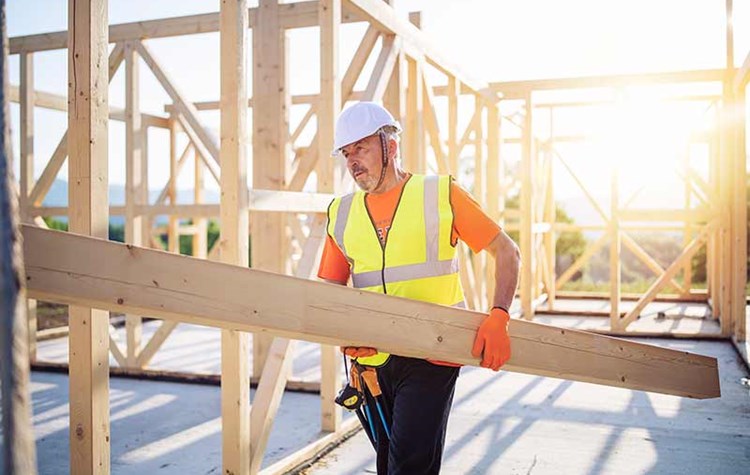Published on 03 February 2023
Did you know an estimated 540 million people in the world are suffering with low back pain at any one time? According to WHO, musculoskeletal conditions are the leading contributor to disability worldwide, with low back pain being the single leading cause of disability in 160 countries. If you want to live an active life, it is important you keep your spine healthy.
Read on to discover how to be kind to your spine.
The importance of spinal health
Your spine is one of the most important parts of your body and it’s made up of 24 small bones (vertebrae). Your spine keeps you upright, gives your body support and flexibility, it protects your spinal cord which connects the nerves in your brain to the rest of your body.
Back pain can be debilitating and can have a huge impact on all areas of your life. It may stop you from being able to do your job, as well as exercising and sleeping. As a consequence, it can affect your mental health and overall wellbeing.
Symptoms of poor spinal health
A misaligned spine can put pressure on your nerves, ligaments, and muscles, which can affect your mobility and cause various symptoms such as stiffness and pain in your lower back, headaches, weakness, reduced flexibility, or numbness. Other symptoms include:
- Fatigue and reduced energy
- Sore/stiff back/neck and shoulders
- Joint pain
- Muscle spasms (in the back and neck)
The causes of back pain
There can be many factors which may have contributed to your back pain:
- Poor posture, such as slouching at a desk or standing for a long time
- Overstretching when you bend
- Back trauma, such as an accident at work, sports injury or fall
If you’re struggling with stiffness in your lower back, you can’t maintain a normal posture due to this, you have muscle spasms or you have a loss of motor function (can no longer tiptoe or heel walk), your back pain could be caused by a spinal problem.
Five ways to look after your spine
Exercise your core
The muscles in your abdomen and back (your core) are central to the health of your spine. Elbow planks, side-planks, abdominal crunches and bird dog are just some of the exercises which can help to strengthen your core muscles and increase your spinal support
Practice good ergonomics while sitting
Using a chair with a backrest that supports the curve of your lower back, sitting back in your chair, positioning your thighs horizontal to your knees at hip level and resting your feet on the floor directly below or on a footrest is the best posture to protect your spine. Taking regular breaks from sitting will also alleviate any pressure on your lower back
Let your spine really rest while sleeping
Sleeping with your spine in a neutral position can reduce the strain on your back and neck. To avoid back pain, the best recommended position to sleep is on your back. To keep your spine aligned, you should place a pillow underneath your head or neck and another pillow underneath your knees. The second-best position to avoid back and neck pain is to sleep on your side with your legs straight. Tucking a pillow between your knees will also keep your spine aligned while you sleep
Maintain a healthy weight
If you’re carrying extra weight around your midsection (your core area) this can put strain on your lower back as the extra weight pulls your pelvis forward. Through eating a balanced diet and exercising regularly and effectively, you can maintain a healthy weight
Don’t smoke
Smoking cigarettes affects the ways that the brain sends its signals that you’re in pain. Smoking may also damage tissue in your lower back by slowing down your blood circulation. This reduces the flow of minerals and nutrients into your joints and muscles
Treatment for back pain at Benenden Hospital
Read our guide to the back pain treatments available at our hospital. If you’re thinking of funding your own treatment, ask us for a quotation by completing our online form or by contacting our Private Patient Team via Livechat or on 01580 363158.






